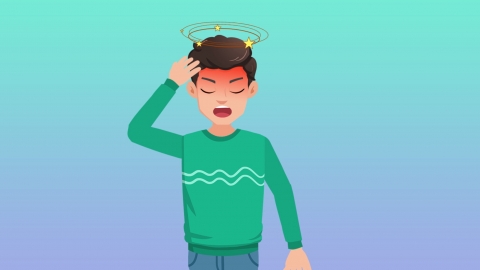Why does heatstroke cause dizziness and fatigue?
Generally, dizziness and fatigue caused by heatstroke may be due to factors such as dehydration and hypovolemia, thermoregulatory imbalance, electrolyte disturbances, cerebral hypoperfusion, or mild cerebral edema accompanying heatstroke. It is recommended to seek timely medical attention, identify the underlying cause, and undergo symptomatic treatment under a physician's guidance. Detailed analysis is as follows:

1. Dehydration and Hypovolemia: During heatstroke, excessive sweating and fluid loss may lead to reduced blood volume, causing relatively insufficient cerebral blood supply and resulting in dizziness and fatigue, often accompanied by thirst and decreased urine output. Immediately move to a cool place, loosen clothing, and orally administer saline solution or oral rehydration salts to replenish fluids. Intravenous infusion of normal saline may also be used. Symptoms of dizziness and fatigue will improve after blood volume is restored.
2. Thermoregulatory Imbalance: In high-temperature environments, a sudden rise in body temperature and impaired heat dissipation leads to heat accumulation in the body, affecting nervous system function and causing dizziness and fatigue, often accompanied by facial flushing and elevated body temperature. Cool the body by wiping with wet towels or fanning, reduce body temperature to below 38°C, elevate the head during rest to promote cerebral blood circulation, and alleviate dizziness symptoms.
3. Electrolyte Disturbances: Excessive sweating causes loss of electrolytes such as sodium and potassium, leading to cellular metabolic disorders and impaired neuromuscular function, which may result in dizziness and fatigue, often accompanied by muscle cramps and nausea. Patients may take oral rehydration salts III, potassium chloride sustained-release tablets, sodium bicarbonate tablets, or other medications under medical guidance to replenish electrolytes and restore acid-base balance, thereby improving symptoms once electrolyte levels normalize.
4. Cerebral Hypoperfusion: During heatstroke, vasodilation and decreased blood pressure lead to reduced cerebral perfusion, causing dizziness and fatigue, often accompanied by visual darkening, palpitations, and worsening symptoms upon standing. Immediately lie down to rest, avoid sudden standing, and take medications such as Shengmai Yin, Yiqi Yangxue Oral Liquid, Midodrine Hydrochloride Tablets, or other medications under medical guidance to raise blood pressure and improve cerebral blood supply. At the same time, replenish fluids and nutrients to enhance vascular regulatory capacity.
5. Heatstroke Complicated by Mild Cerebral Edema: In severe heatstroke, thermal injury to the brain may cause mild cerebral edema and a slight increase in intracranial pressure, leading to dizziness and fatigue, often accompanied by headache, irritability, and persistently elevated body temperature. Rapid cooling under a physician's guidance is required, along with intravenous administration of medications such as mannitol injection, furosemide injection, and dexamethasone sodium phosphate injection to reduce cerebral edema, suppress inflammatory responses, and improve brain function. Surgical treatment is not necessary.
In daily life, during high-temperature weather, limit outdoor activities. If going out is necessary, practice sun protection by wearing hats, breathable clothing, and carrying saline solution for timely hydration. Avoid prolonged labor in high-temperature environments, take a 10-minute break every hour, and consume more heat-relieving foods such as watermelon and mung bean soup to enhance the body's heat tolerance.







